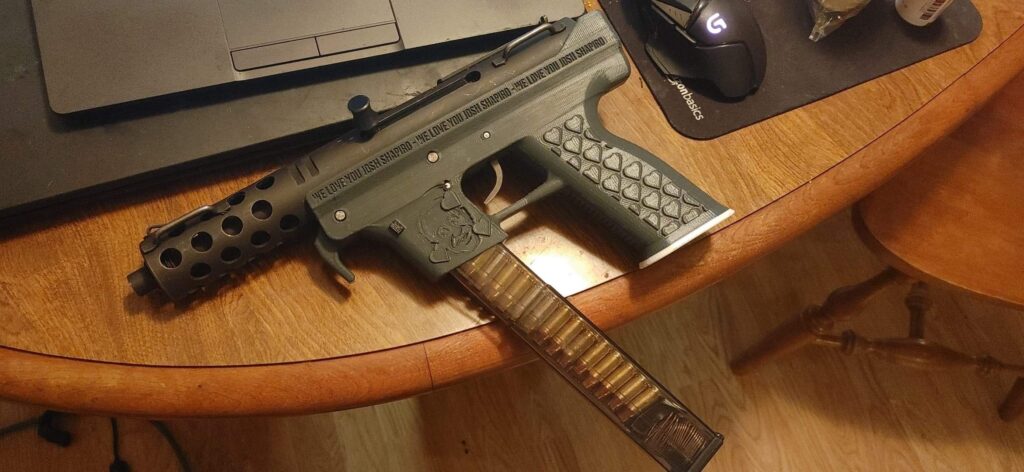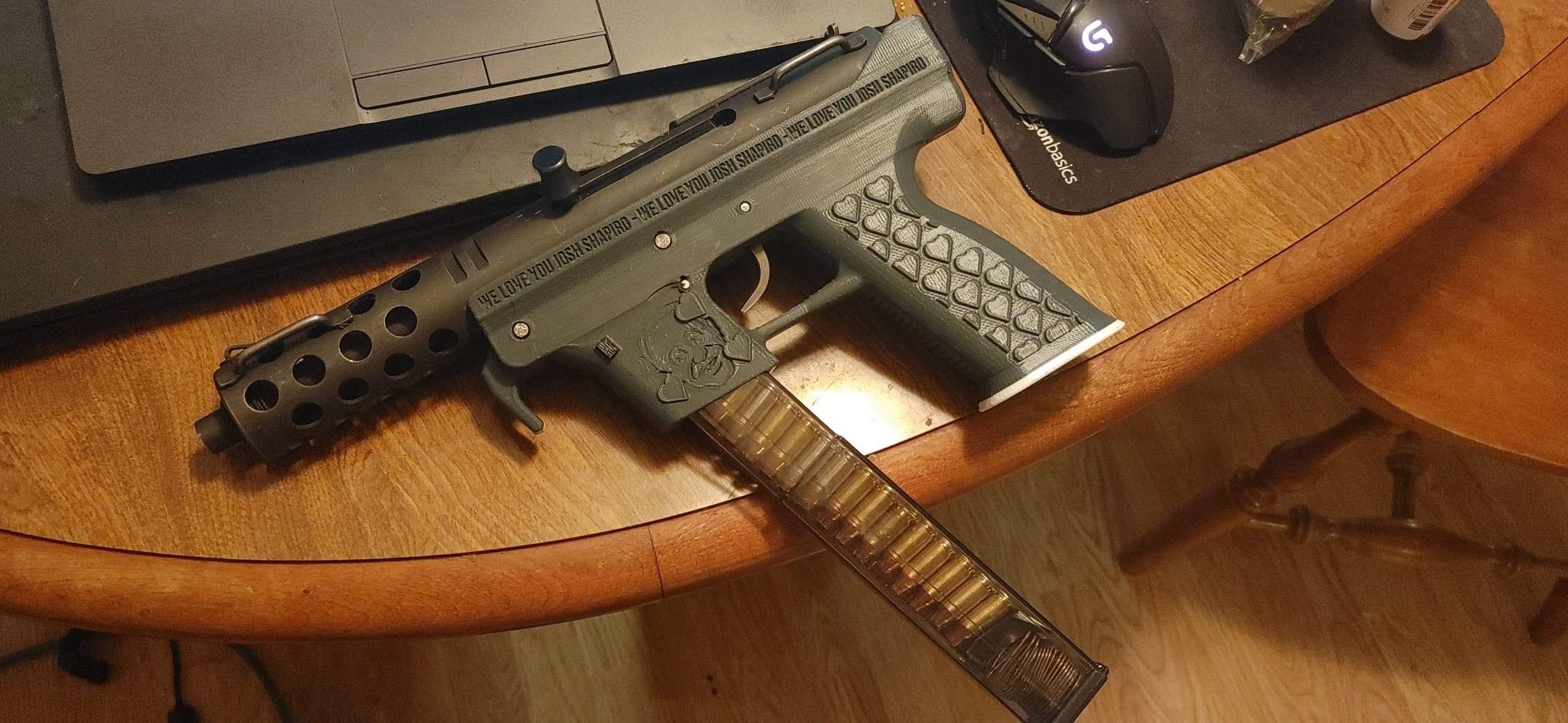
Are TEC-9s Legal? A Comprehensive Guide to Regulations and Restrictions
The question, “are TEC-9s legal?” elicits strong opinions and complex answers. This article provides a comprehensive, expert-backed exploration of the legal status of TEC-9s (also known as Intratec TEC-DC9) and similar firearms in the United States. We’ll delve into federal regulations, state-specific laws, historical context, and the reasons behind their controversial reputation. Our goal is to provide a clear, unbiased, and thoroughly researched understanding of this complex legal landscape. You’ll gain a complete picture of where these firearms are legal (and illegal), the specific regulations surrounding them, and the potential implications for ownership.
Understanding the TEC-9 and its Variations
The TEC-9, originally manufactured by Interdynamic AB of Sweden and later by Intratec in the United States, is a semi-automatic handgun known for its distinctive appearance and association with criminal activity. It’s crucial to understand that the term “TEC-9” often encompasses several variations, including the TEC-DC9 and AB-10. These variations have slightly different features, which can impact their legal classification.
Key Characteristics of TEC-9 Firearms:
- Semi-Automatic Action: Fires one round per trigger pull.
- High-Capacity Magazines: Originally designed to accept large-capacity magazines (though later models were restricted).
- Polymer Frame: Contributes to its relatively light weight.
- Controversial Design: Its appearance and association with crime have made it a target of gun control legislation.
Historical Context and Evolution
The TEC-9’s history is intertwined with the rise of semi-automatic firearms and debates over gun control. Introduced in the 1980s, it quickly gained notoriety due to its association with several high-profile crimes. This notoriety led to increased scrutiny and ultimately, restrictions on its manufacture and sale in many jurisdictions. The original intent was to provide a cost-effective and reliable firearm for military and law enforcement, but it never achieved substantial adoption in either sector.
The evolution from the TEC-9 to the TEC-DC9 and AB-10 involved design modifications aimed at circumventing certain regulations. However, these changes did little to improve the firearm’s reputation or its legal standing.
Federal Regulations and the TEC-9
Federal law plays a significant role in regulating firearms, including the TEC-9. The Bureau of Alcohol, Tobacco, Firearms and Explosives (ATF) is the primary federal agency responsible for enforcing these laws.
Key Federal Laws Affecting TEC-9s:
- National Firearms Act (NFA): Regulates certain types of firearms, including machine guns, short-barreled rifles, and suppressors. The TEC-9, in its original semi-automatic configuration, is generally not subject to the NFA.
- Gun Control Act of 1968 (GCA): Establishes regulations for firearms dealers and prohibits certain individuals from owning firearms.
- Assault Weapons Ban of 1994: This law, which expired in 2004, banned the manufacture and sale of certain semi-automatic firearms that were deemed “assault weapons,” including the TEC-DC9. While the ban is no longer in effect, it had a significant impact on the availability of these firearms.
The Assault Weapons Ban and its Impact
The 1994 Assault Weapons Ban specifically targeted the TEC-DC9 due to its features, such as a threaded barrel (allowing for the attachment of a silencer) and a high-capacity magazine. The ban prohibited the manufacture and sale of these firearms for civilian use. While it was in effect, the availability of new TEC-DC9s significantly decreased. However, existing firearms that were legally owned before the ban remained legal to possess (though subject to certain restrictions on transfer in some states).
The expiration of the Assault Weapons Ban in 2004 led to renewed debate over the legality of these firearms. While the federal ban is no longer in place, several states have enacted their own assault weapons bans, which continue to restrict or prohibit the possession of TEC-9s and similar firearms.
State Laws and the TEC-9: A Patchwork of Regulations
The legal status of TEC-9s varies significantly from state to state. Some states have strict assault weapons bans that prohibit the possession of these firearms, while others have more lenient regulations.
States with Stricter Regulations (Examples):
- California: California’s assault weapon laws are among the strictest in the nation. The TEC-9 and its variants are generally prohibited.
- New York: New York also has a comprehensive assault weapons ban that includes the TEC-9.
- Massachusetts: Massachusetts law closely mirrors the federal ban that expired in 2004.
- New Jersey: New Jersey prohibits the possession of assault weapons and large-capacity magazines.
States with More Lenient Regulations (Examples):
- Arizona: Arizona generally has permissive gun laws and does not have an assault weapons ban.
- Texas: Texas also has relatively few restrictions on firearms ownership.
- Florida: While Florida has some restrictions on firearms, it does not have a comprehensive assault weapons ban.
Navigating State-Specific Laws: A Complex Task
It is crucial to consult with a qualified attorney or legal expert to determine the specific laws in your state regarding the TEC-9. State laws are subject to change, and interpretations can vary. Ignorance of the law is not a defense, and possessing an illegal firearm can result in severe penalties.
The TEC-9 and Criminal Activity: A Troubled History
The TEC-9 has unfortunately been associated with numerous high-profile crimes, contributing to its negative reputation and fueling calls for stricter gun control measures. Its relatively low cost and availability (before the Assault Weapons Ban) made it a popular choice among criminals.
Examples of Crimes Involving TEC-9s:
- Several mass shootings in the 1990s involved TEC-9 firearms, raising public concern and prompting legislative action.
- The TEC-9 has been linked to gang violence and drug trafficking in various cities across the United States.
The Impact of Criminal Use on Public Perception
The association of the TEC-9 with criminal activity has significantly shaped public perception of the firearm. Many people view it as a symbol of violence and believe that it should be banned entirely. This negative perception has made it difficult to have a rational and informed debate about its legal status.
Alternatives to the TEC-9: Legal and Responsible Options
For individuals interested in owning a firearm for self-defense or recreational shooting, there are many legal and responsible alternatives to the TEC-9. These alternatives offer similar functionality without the legal baggage and negative connotations associated with the TEC-9.
Examples of Alternatives:
- Glock Pistols: Glock pistols are widely used by law enforcement and civilians alike. They are reliable, accurate, and available in various calibers.
- Smith & Wesson M&P Pistols: Similar to Glock pistols, Smith & Wesson M&P pistols are a popular choice for self-defense and recreational shooting.
- Sig Sauer Pistols: Sig Sauer pistols are known for their quality and accuracy. They are often used by military and law enforcement personnel.
Responsible Gun Ownership: A Key Consideration
Regardless of the type of firearm you choose to own, responsible gun ownership is paramount. This includes:
- Proper Training: Taking a firearms safety course is essential for learning how to handle a firearm safely and responsibly.
- Secure Storage: Storing firearms securely prevents unauthorized access and reduces the risk of accidents.
- Understanding the Law: Familiarizing yourself with federal, state, and local gun laws is crucial for avoiding legal trouble.
Expert Insights: Perspectives on the TEC-9’s Legality
Legal experts and firearms professionals offer diverse perspectives on the legality and appropriateness of TEC-9s. Some argue that these firearms should be strictly regulated due to their association with crime, while others maintain that law-abiding citizens should have the right to own them.
Expert Opinion 1: “The TEC-9’s design and history make it a particularly dangerous firearm that should be subject to stricter regulation.”
Expert Opinion 2: “While the TEC-9 has been used in crimes, it is not inherently more dangerous than other semi-automatic pistols. Law-abiding citizens should not be penalized for the actions of criminals.”
The debate over the TEC-9’s legality is likely to continue for the foreseeable future. Understanding the different perspectives and the underlying arguments is essential for forming an informed opinion.
Q&A: Addressing Common Questions about TEC-9s
Here are some frequently asked questions about the legality and ownership of TEC-9 firearms:
- Q: Is it legal to own a TEC-9 in California?
A: Generally, no. California’s assault weapons laws prohibit the possession of TEC-9s and their variants.
- Q: Can I purchase a TEC-9 in a state where it is legal and then transport it to a state where it is illegal?
A: No. Transporting a firearm across state lines with the intent to violate state law is a federal offense.
- Q: What is the difference between a TEC-9 and a TEC-DC9?
A: The TEC-DC9 was a slightly modified version of the TEC-9, designed to address some of the criticisms of the original model. However, both firearms are generally treated the same under the law.
- Q: Are high-capacity magazines legal for TEC-9s?
A: The legality of high-capacity magazines varies by state. Some states prohibit magazines that hold more than a certain number of rounds (e.g., 10 rounds).
- Q: What are the penalties for illegally possessing a TEC-9?
A: The penalties for illegally possessing a TEC-9 can vary depending on the state and the specific circumstances of the case. Penalties may include fines, imprisonment, and forfeiture of the firearm.
- Q: If I legally owned a TEC-9 before the Assault Weapons Ban, can I still own it today?
A: In most cases, yes. However, you may be subject to certain restrictions on transfer or modification.
- Q: Are there any grandfather clauses that allow me to own a TEC-9 even if it is currently banned in my state?
A: Some states have grandfather clauses that allow individuals who legally owned a firearm before a ban went into effect to continue owning it. However, these clauses often come with restrictions.
- Q: How can I find out the specific gun laws in my state?
A: Contacting a qualified attorney or legal expert is the best way to obtain accurate and up-to-date information on gun laws in your state.
- Q: Does the ATF have a list of firearms that are considered “assault weapons”?
A: The ATF does not maintain a comprehensive list of firearms that are considered “assault weapons.” The definition of “assault weapon” varies by state and can be subject to interpretation.
- Q: What should I do if I inherit a TEC-9 that is illegal in my state?
A: You should consult with a qualified attorney or legal expert to determine your options. These options may include selling the firearm to a licensed dealer in a state where it is legal, surrendering it to law enforcement, or modifying it to comply with state law (if possible).
Conclusion: Navigating the Complex Legal Landscape of TEC-9s
The legality of TEC-9s is a complex and evolving issue. Federal and state laws, as well as public perception, all play a role in shaping the legal landscape. Understanding these factors is essential for anyone considering owning or possessing a TEC-9.
This article has provided a comprehensive overview of the legal status of TEC-9s in the United States. However, it is not a substitute for legal advice. Always consult with a qualified attorney or legal expert to determine the specific laws in your state and to ensure that you are in compliance with all applicable regulations.
We encourage you to share your experiences and perspectives on the legal status of TEC-9s in the comments below. Your insights can help others navigate this complex and often confusing area of law.

